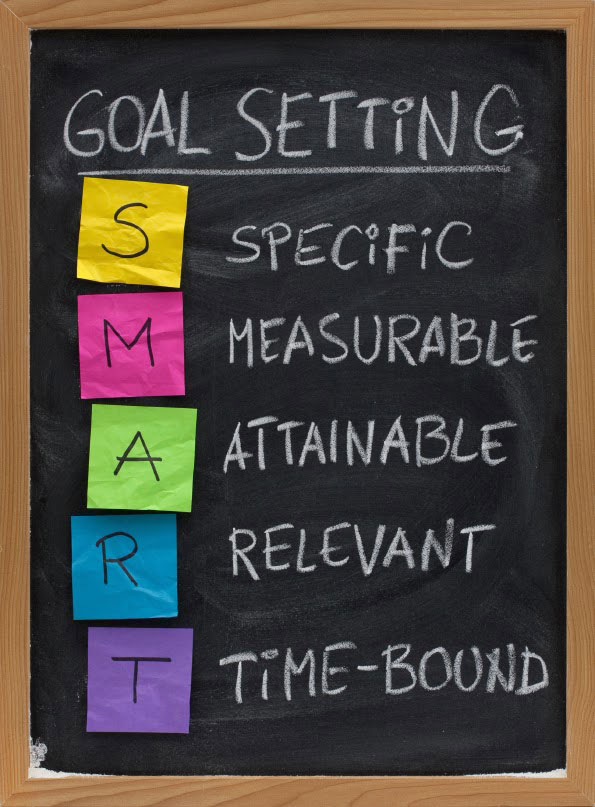So we’re just over two weeks into the new year and many people are probably struggling with their resolutions. It’s very common, and we all do it. We make big plans and then a few days later ask ourselves, “What was I thinking?!” in sheer disappointment. Well, maybe it’s not quite as dramatic as that but you get the idea. To help with these resolutions, I want to share a simple acronym that will hopefully enable you to revise (if necessary) and refine your goals for 2012 so that you maximize your ability to achieve them. It will still require hard work and dedication, but the planning phase is a very important one when it comes to change. The acronym is this: make SMART goals…
Specific. Goals that are too general or vague cannot be tracked, broken down into smaller, more achievable ones. Specific goals, however, identify exactly what it is you’re looking to accomplish so that you can be clear what is required of you and when you have succeeded.
Measurable. One aspect of a specific goal is that it’s measurable, so that you can track progress. A goal like “become a better person” may be a good goal but how can you measurable personal goodness? You need to define the goal into measurable attributes, such as become more honest with friends, responsible with finances, and more patient with coworkers.
Attainable. This is a big one. Many people create lofty goals that are simply not attainable. They’re perfectly good and measurable… if you’re a superstar athlete or have all the time and resources in the world. Remember, in order for you to be successful you must have the ability to achieve your goals, and those goals must continually motivate you to achieve them.
Realistic. It’s important to set high goals that will stretch you, but also ones that you can realistically achieve based on your willingness and ability. Your goals must be relevant and appropriate to YOU, not just a good goal to have in general (what may be good in general may not be right for you, specifically).
Time-Oriented. If every aspect of your resolution is reasonable but you don’t have any timeframe for it, you may never have the motivation to work towards it or be able to measure it. Applying a time period to goals should increase motivation because as the deadline approaches, motivation should improve. Timeframes also create parameters that allow measurement. If you want to lose 50 pounds in 2012, you now know that you must lose roughly a pound per week consistently throughout the year to achieve it.
If you can remember SMART, you can set appropriate goals to help you stay on track towards success this year. Also, remember that it’s okay to revise goals rather than simply give up on them. You might realize part way through that a goal is too difficult or that you don’t have enough time to complete it. Consider re-evaluating the goal and revising it so that you can achieve it, but be willing to learn from the experience so that you can improve in your goal-setting skills.

